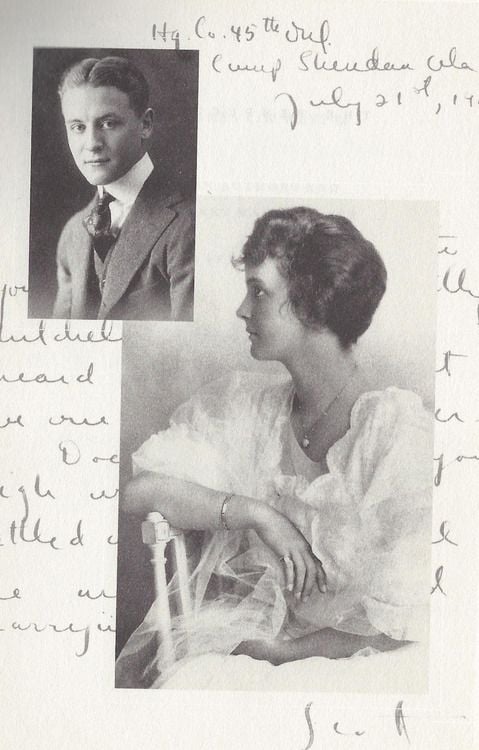Familiar to many because of the original 1925 American classic novel and its numerous film adaptations, The Great Gatsby continues to be F. Scott Fitzgerald’s most famous work. The Great Gatsby is an authentic reflection of Fitzgerald’s life and not only that, but it also shares many plot similarities to the short story of his former lover.
As concluded by many literary experts, the storyline of The Great Gatsby contains many similar elements to the short story his former lover, socialite Ginevra King, wrote for him.
Fitzgerald’s Unrecognized Talent
Known as either one of the best books published in the 20th century or its movie adaptations, The Great Gatsby is familiar to many around the globe. Written by F. Scott Fitzgerald to be released in 1925, The Great Gatsby became a classic in American literature. The beloved novel that made Fitzgerald famous birthed four film adaptations from 1926 to 2013, with the most known released in 2013, starring esteemed and talented actors such as Leonardo DiCaprio. (Source: Prep Scholar)
Although it seems unbelievable due to his international recognition as a novelist, Fitzgerald thought of himself as a failure as none of his works received much success, making him unfulfilled. He only began attracting attention years after his death, with Fitzgerald passing away years before the Modern Library deemed The Great Gatsby as the best American novel of the 20th century.
Many readers now see The Great Gatsby as a reflection of Fitzgerald’s life, putting himself and external influences in the novel’s characters. Jay Gatsby and Nick Carraway became a representation of the life Fitzgerald had perpetually sought for himself. When Fitzgerald and his wife, Zelda, moved to Long Island, the division between the old guard elite and the new money became much more apparent, influencing the neighborhood divide in The Great Gatsby. (Source: Thought Co.)
After Fitzgerald finished creating The Great Gatsby, his life went downhill as he immersed himself in alcohol and struggled with writer’s block and depression. As he strived to redeem himself in Hollywood as a writer, he died from a heart attack at 44, gaining only modest accomplishments and failing to finish his seemingly last novel. (Source: Biography)
The Impassioned Love Before Zelda
Known as Fitzgerald’s lover before he made his commitment with Zelda, Ginevra King not only became the speculated inspiration of The Great Gatsby‘s Daisy Buchanan, but she also created a short story that greatly influenced the story of The Great Gatsby.
King and Fitzgerald first met in St. Paul, Minnesota, at a party in 1915. From then, a romantic affair emerged that lasted for two years. With that said, the connection they’ve built through their never-ending communication lasted for numerous years. As Fitzgerald was only a poor student and King was a widely-recognized socialite, the relationship halted when King’s father told Fitzgerald that poor boys shouldn’t think of marrying rich girls, an iconic line seen in the novel and its film adaptations. (Source: Thought Co.)
During their relationship, King wrote a short story in response to The Perfect Hour, a story Fitzgerald wrote for her in 1916. Within King’s short story, she features herself as somebody trapped in an unhappy marriage with a Russian Count. The story continues with King seeking Fitzgerald’s love, with the two reuniting after Fitzgerald’s success as an affluent producer, taking her from her unfaithful spouse.
Fitzgerald kept King’s short story until his death, and upon the analysis of literary scholars, they’ve noted its similarity to The Great Gatsby. Seemingly, this short story became an outline for the classic novel’s storyline.
What makes the story tantalizing is that it contains basic elements of the storyline of The Great Gatsby: the beautiful but restless wife, the wealthy but inattentive husband, and the old flame, now rich and handsome, living in elegant quarters. A few of the signature details from ‘Gatsby’ are even present, including the mysterious servants, the ‘Wedding March,’ which Gatsby and Daisy hear at the Plaza, and a ticking clock.
James West, Professor of English
(Source: Princeton Weekly Bulletin)
